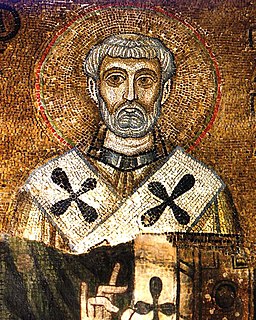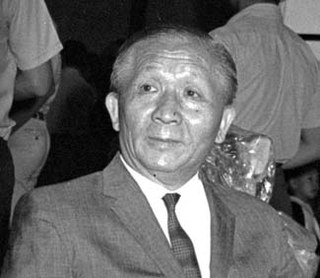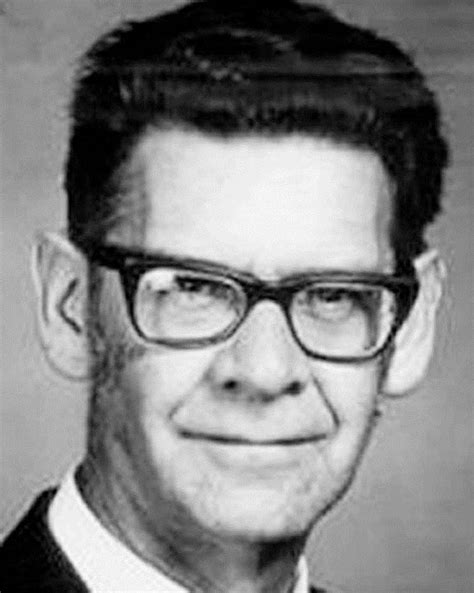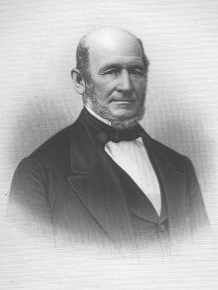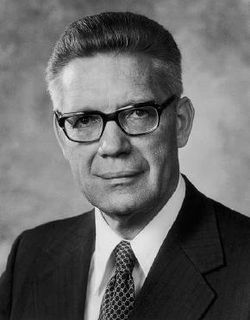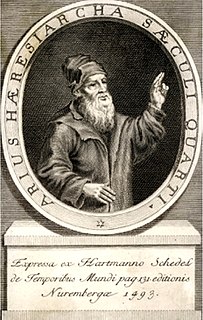A Quote by William Ames
The relative property of the Son is to be begotten, that is, so to proceed from the Father as to be a participant of the same essence and perfectly carry on the Father's nature.
Related Quotes
... if we say that the Father is the origin of the Son and greater than the Son, we do not suggest any precedence in time or superiority in nature of the Father over the Son (cf. Jn. 14:28)? or superiority in any other respect save causation. And we mean by this, that the Son is begotten of the Father and not the Father of the Son, and that the Father naturally is the cause of the Son.
Now there have been delivered to us in the Gospel three Persons and names through whom the generation or birth of believers takes place, and he who is begotten by this Trinity is equally begotten of the Father, and of the Son, and of the Holy Ghost —for thus does the Gospel speak of the Spirit, that “that which is born of Spirit is spirit,” and it is “in Christ “that Paul begets, and the Father is the “Father of all”.
The heavenly Father Whom we worship is the Father of the Truth, namely, of the only-begotten Son, and has the Spirit of Truth, the Holy Spirit, and those who worship Him in these Two do so because they believe in these Persons and act through Them. For the Apostle tells us that it is through the Spirit that we worship and pray (cf. Rom. 8:26), and God's only-begotten Son says, 'No man cometh unto the Father, but by Me' (John 14:6).
The Son is called the Father; so the Son must be the Father. We must realize this fact. There are some who say that He is called the Father, but He is not really the Father. But how could He be called the Father and yet not be the Father?... In the place where no man can approach Him (I Tim. 6:16), God is the Father. When He comes forth to manifest Himself, He is the Son. So, a Son is given, yet His name is called 'The everlasting Father.' This very Son who has been given to us is the very Father.
Mission [is] understood as being derived from the very nature of God. It [is] thus put in the context of the Trinity, not of ecclesiology or soteriology. The classical doctrine of the missio dei as God the Father sending the Son, and God the Father and the Son sending the Spirit [is] expanded to include yet another “movement”: Father, Son, and Holy Spirit sending the church into the world.
... In relation to the way in which I look upon the works of God and his creatures, I will say that I was naturally begotten; so was my father, and also my Saviour Jesus Christ. According to the Scriptures, he is the first begotten of his father in the flesh, and there was noting unnatural about it.
And Christ was born into the world as the literal Son of this Holy Being; he was born in the same personal, real, and literal sense that any mortal son is born to a mortal father. There is nothing figurative about his paternity; he was begotten, conceived and born in the normal and natural course of events, for he is the Son of God, and that designation means what it says.
Can anyone be a father without beginning to be one? Yes, one who did not begin his existence. What begins to exist begins to be a father - God the Father did not begin at all. He is Father in the true sense, because He is not a son as well. Just as the Son is son in the true sense, because He is not a father as well. In our case, the word 'father' cannot be truly appropriate, because we must be fathers and sons.
Think of the Father as a spring of life begetting the Son like a river and the Holy Ghost like a sea, for the spring and the river and sea are all one nature. Think of the Father as a root, and of the Son as a branch, and the Spirit as a fruit, for the substance in these three is one. The Father is a sun with the Son as rays and the Holy Ghost as heat.
Again, there are other things associated with these matters, all bearing more or less upon the same points. When God selected Joseph Smith to open up the last dispensation, which is called the dispensation of the fullness of times, the Father and the Son appeared to him, arrayed in glory, and the Father, addressing himself to Joseph, at the same time pointing to the Son, said, "This is my beloved Son, in whom I am well pleased; hear ye him.

